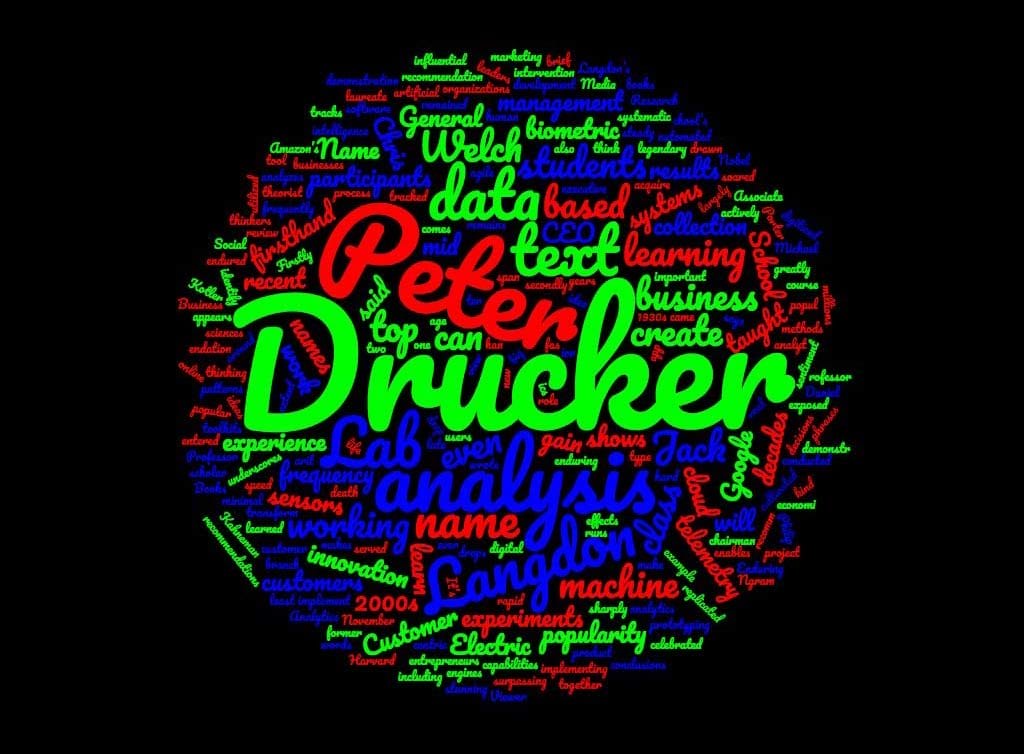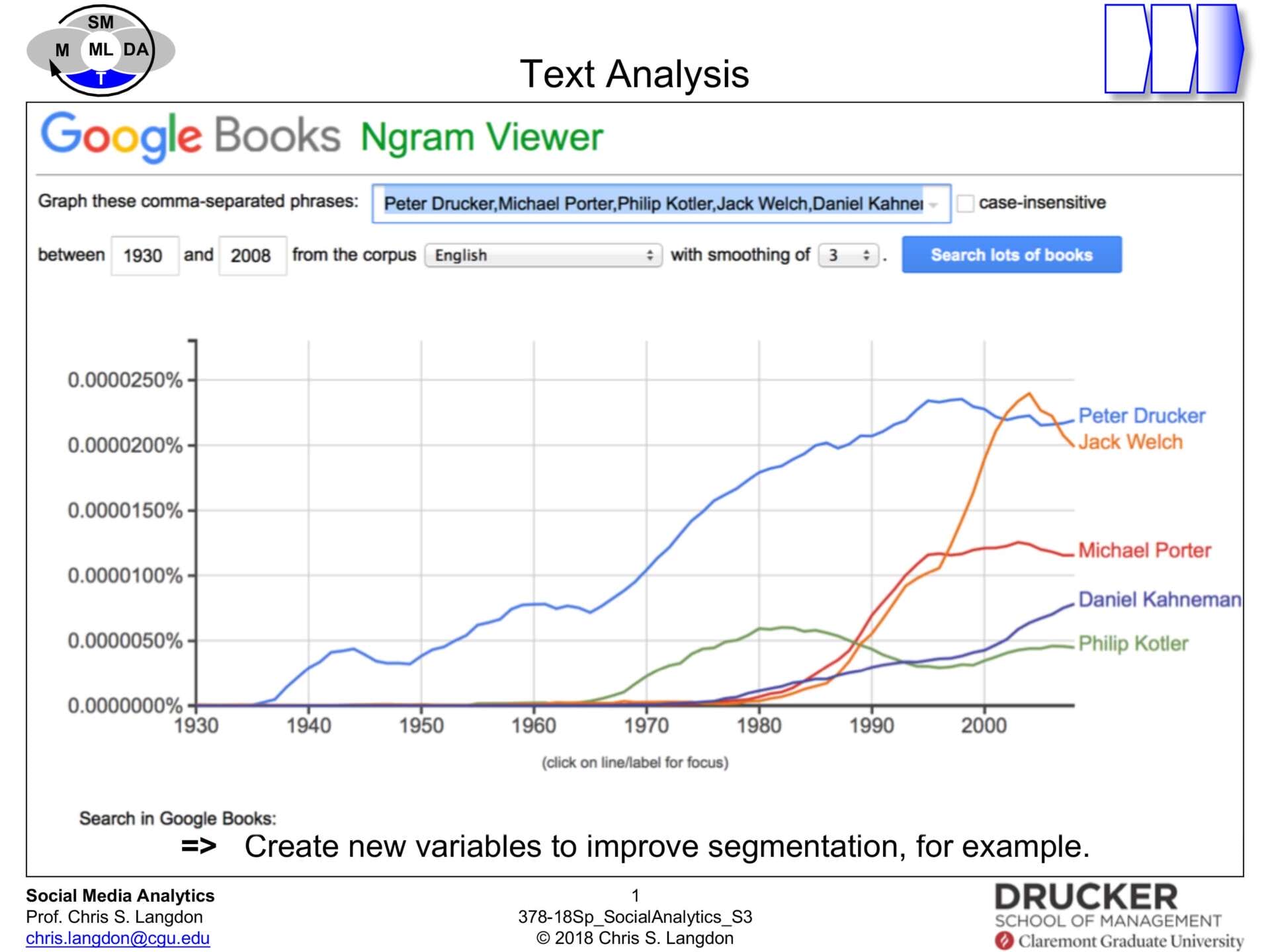It’s All in the Name: The Enduring Popularity of Peter Drucker

Peter Drucker appears to be more popular than ever before, greatly surpassing other top management thinkers and business leaders—even Jack Welch, the celebrated former CEO of General Electric.
Those are the conclusions drawn from a recent text analysis of Peter Drucker’s popularity conducted in a Drucker School Social Media Analytics course taught by Research Associate Professor Chris S. Langdon. In the class, students learn about text and sentiment analysis and work with machine learning methods—a branch of artificial intelligence based on automated systems that can learn from data, identify patterns, and make decisions with minimal human intervention—to create recommendation engines, software that analyzes data and makes recommendation to users—think Amazon’s recommendations. For a demonstration of text analysis, Langdon utilized Google Books Ngram Viewer—a one-of-a-kind online tool that tracks the frequency of words or phrases in the millions of books digitized by the Google Books project.

When Langdon’s class entered Peter Drucker’s name together with other top names in business and management—including Harvard Business School theorist Michael Porter, economics Nobel laureate Daniel Kahneman, and influential marketing scholar Philip Kotler—the results were stunning: Peter Drucker’s name came out on top.
For Langdon, who also runs the school’s Drucker Customer Lab, this analysis shows at least two effects: “Firstly the extent of the popularity of ‘Peter Drucker’ over decades, and secondly, how enduring it remains in this digital age.”
The names were tracked from the 1930s to the late 2000s.
For the most recent years, Peter Drucker’s name comes up even more frequently than that of Jack Welch, the legendary business executive who served as chairman and CEO of General Electric from 1981 to 2001. And while the frequency of Jack Welch’s name drops off sharply in the mid-2000s, Peter Drucker’s remained largely steady during this span—even after his death in November 2005.
This in-class example underscores the important role of big data, analytics, and real-life experiments in implementing the type of innovation that is cultivated in the Drucker Customer Lab, Langdon says
Lab participants gain firsthand experience working with telemetry and biometric sensors for data collection, cloud-based machine-learning systems for analytics, and app-enabled rapid prototyping toolkits for experiments. Drucker wrote that innovation results from analysis, systematic review, and hard work—all which can be taught, replicated, and learned.
“We actively implement Peter Drucker’s ideas, his views, his thinking,” Langdon said.